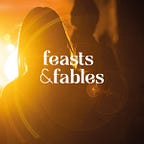‘Half full’ or ‘half empty’?
The Encouragement Manifesto (Part 2)
Glass half full, or half empty?
How do you look at life?
We are incorrigibly positive. Not ‘in your face’, wildly enthusiastic, evangelically upbeat. We are much more a gentle positivity. A life in which the frictions of negativity are withdrawn. We know they are there but we don’t use up our precious time being held back by them.
Which got us thinking …
There is always a choice about how you look at things.
Half full. Half empty.
Listening to a DO Lectures talk by adventurer Sarah Outen, we were struck by these opposing points on our emotional compass; it was a clever subject for lockdown — “what 500 days alone on the ocean taught me”.
At one point, Sarah notes the contrasting perspectives of this time alone:
Solitude … romanticism, beautiful, hopeful, increased (personal) awareness
Isolation … separated, detached, unsafe
The same situation — aloneness — but seen from opposite ends of the spyglass. One, uplifting and an encouragement to grow; the other, scary, an invitation to shrink before overwhelming waves of negativity.
Writing about silence yesterday, I was stuck by that idea of ‘two ends of a spectrum’; negativity being twisted on its head to create an uplifting view:
Silence isn’t the absence of something … (it is) the presence of everything
One subject; two viewpoints. One, a blanket within to wrap oneself; comforting and energising. The other, a sense of loss, of darkness, of cold.
We are moved to view life through a prism of positivity and drawn to people who feel that way too. Aligned with the language of their positivity. DOing things; not ‘not doing things’. Seeing the risks … and diving in anyway.
There is a beautiful short film by Friction Collective called Hydrotherapy, which explores the restorative benefits of cold water swimming, seen through the eyes of Laura Owen Sanderson. Her battle with debilitating illness would have ground down a less positive character. Her ‘glass half full’ attitude is summed up by a quote from the film:
“I wasn’t afraid to die; I was angry that I hadn’t lived”
The rich duality of language allows us to tread the emotional path we choose.
We can see ‘isolation’ and feel cowed by fear, or embrace ‘solitude’ and learn to grow.
There is a pleasure in the pathless woods,
There is a rapture on the lonely shore,
There is society, where none intrudes,
By the deep Sea, and music in its roar:
I love not Man the less, but Nature more,
From these our interviews, in which I steal
From all I may be, or have been before,
To mingle with the Universe, and feel
What I can ne’er express, yet cannot all conceal.
George Gordon Byron [1788–1824]
